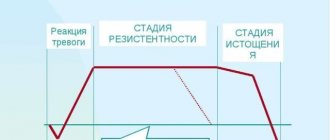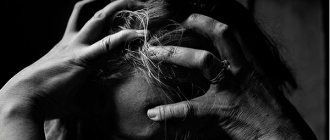Everyone has periods in life when everything goes awry, nothing makes you happy, and the blues and apathy set in. This is how depression manifests itself, a disease that affects millions of people living on the planet.
It’s good when such periods do not last long and we are talking about the so-called “reactive depression”. This kind of depression has a beginning and an end, as it is caused by stress or troubles, which necessarily pass; the experience is forgotten and depressing thoughts are replaced by positive emotions and pleasant events.
Therefore, questions such as how to get rid of depression, how to get out of depression, or how to cope with depression in this case are premature to ask. Time heals here, which, under these circumstances, is the best healer.
It’s a completely different matter when the state of depression, blues, and reluctance to do something lasts long enough. The color of life is gray and gloomy, nothing pleases or excites, and all independent attempts to escape from the clutches of the blues are unsuccessful. In such a situation, seeking help from a specialist will be most effective.
Depression scale
If a patient has doubts about the state of his health, and he is sufficiently informed in matters of mental disorders, it will not be difficult during self-diagnosis to determine the presence of a depressive episode.
The 21-item Beck Depression Inventory is used for this purpose. It contains several statements, in each of them you need to select only one option. This phrase should reflect the thoughts and feelings of a person at the current moment as accurately as possible.
You need to answer questions as truthfully as possible and be sincere with yourself. As a result, it is necessary to calculate the total number of points; the lower their number, the lower the likelihood of depression.
If you have alarming results on the Beck scale, you should contact a specialist; you can make an appointment at Dr. Isaev’s Clinic any day. This should be done immediately if you are experiencing panic attacks due to nervous exhaustion.
Signs of Depression
Under certain circumstances, this condition can occur in every person, regardless of gender, age and social status. Depression is a type of mental illness accompanied by a persistent decrease in mood. A person remains in this state for more than two weeks continuously; he experiences a decrease in memory and concentration, loss of interest in life, and retardation of movements. In the absence of timely treatment, the patient loses the ability to live and work fully for many months and even years, and the possibility of attempting to commit suicide cannot be ruled out.
Depression causes
According to statistics, about 90% of diagnoses are made to people who are in a state of chronic stress or experiencing acute psychological trauma. The body cannot cope with this influence of external factors on its own, the psyche fails, depressive episodes are a kind of defensive reaction.
Conditions arising due to severe psychological trauma are considered reactive. They can be triggered by the following events in the patient’s life:
- disability due to health and absence of serious illnesses;
- detection of a malignant tumor;
- conflicts at work, constant tension in relationships with colleagues;
- serious illness of a close relative;
- death of a loved one;
- divorce from your beloved spouse;
- retirement;
- rapid decline in financial levels;
- moving to another city and other factors that can be a real shock for a person.
Depression is not always formed on the basis of negative events. Sometimes the disease occurs when an important life goal is achieved, when a person experiences great success. The patient gets what he wanted. He suddenly loses the meaning of life, he no longer needs to make every effort for a specific result. The situation is aggravated if there are no other life goals at this moment.
A separate category includes depressive neurosis, which develops against a background of constant stress. In this case, it is not always possible to establish the specific cause that became the trigger for the pathology. The patient describes his life as a chain of constantly recurring failures that haunt him every day.
A depressive state of the psychogenic type is more typical for women, while older people suffer from the disease more often than young people. In our society, there are two extreme poles of financial well-being - poverty and wealth. This social scale causes a person to feel dissatisfied with himself if he constantly approaches the first category.
Additional provoking factors will be:
- pessimistic outlook on life;
- low self-esteem, constant self-flagellation;
- loss of parents, loved ones, friends;
- emotional violence against a person;
- physical aggression that the child experienced at an early age;
- predisposition to drug addiction and alcoholism;
- lack of support from others, their indifference towards the person.
Each of these factors in itself is not dangerous; if desired, a person can easily ignore it or seek help from a psychotherapist. If there are several of them, the situation becomes more complicated, the experiences become more intense and acute. In this case, drug treatment may be required.
For example, in a teenager, the period of growing up is associated with intensive growth of all organs and systems; pregnancy and menopause in women are accompanied by hormonal storms. This is fertile ground for the development of a melancholic mood and ever-increasing dissatisfaction with oneself. During these periods, experiences take on a negative connotation; the world around often seems hostile and indifferent.
Organic brain lesions, as well as physical diseases, are classified into a separate category. Cerebrovascular accidents, strokes and heart attacks, traumatic brain injuries, coronary heart disease, and stomach ulcers are also among the sources of depression listed by experts. Against the backdrop of the development of such diseases, depression manifests itself clearly and clearly.
Treatment of stress and depression at the Ultramed clinic
A large number of drug names presupposes knowledge of their properties and individual characteristics of the course of the disease. Based on the above information, you can understand that contacting a professional psychotherapist is the best way to find the right medication to treat stress and depression. Do not self-medicate - trust the professionals and do not delay visiting a doctor.
If you experience anxiety, nervous breakdowns or apathy, you should immediately contact a specialist to avoid the serious consequences of prolonged depression. Our clinic employs experienced psychotherapists who will help you get rid of stress and depression, even if it has become clinical. At the clinic, you will receive comprehensive treatment that takes into account the condition of internal organs affected by the influence of prolonged experiences and rapid heartbeat.
Call us and we will answer all your questions - the Ultramed clinic hotline is open around the clock, seven days a week, seven days a week!
Treatment of stress and depression: anti-anxiety medications
In the treatment of depression, drugs that differ in the active substance are used. They can be natural, plant-based or created in laboratory conditions, affecting brain receptors. An experienced psychotherapist will tell you which medicine to use in a particular case.
Antidepressants are divided according to the principle of their effect on the human body into the following types:
- stimulants
- balanced action drugs
- sedatives
Such drugs are sold strictly according to a doctor's prescription. They are used in cases where the patient experiences rapid heartbeat, anxiety, irritability and high excitability. Indications include lethargy, melancholy, apathy, suicide attempts and deep depression. Self-administration of antidepressants is prohibited.
Depression in women
There are several factors that lead to the development of depression in women. Among them are the following categories:
- Biological
The disorder develops slowly and gradually under the influence of changes in the body. Increased nervous excitability, decreased levels of norepinephrine or serotonin, and hormonal imbalance lead to pathology. The situation is aggravated if the body lacks vitamins, microelements and other useful substances.
- Social
This group of factors is associated with frequent stress, bad habits, polluted environment, increased physical and emotional activity. The female body is weaker than the male; it is not able to withstand such loads for a long time. The psyche is depleted, various unfavorable states arise, including depressive ones.
- Interpersonal relationships
Psychotraumatic events that occur in a woman's life can cause this disorder. Among them are:
- death of a loved one;
- long-term separation or complete breakup of relationships;
- lack of understanding on the part of relatives;
- constant dissatisfaction with your appearance, excess weight or physical characteristics;
- professional dissatisfaction.
The combination of these factors threatens an increase in symptoms and a gradual deterioration in a woman’s health.
The lack of joy in life radically changes the patient’s character; he becomes melancholic, constantly dissatisfied with himself and his loved ones, and makes complaints about everyone, even if there is no reason for this.
What are the dangers of severe depression?
- Behavior changes. From simply avoiding their usual activities to changing their lifestyle, people with depression end up in sects and extremist organizations. From stopping self-care to attempting suicide.
- Loss of usual social connections: dismissal from work, family breakdown, loss of friends. What has formed around a person over the course of life, forming his environment, is destroyed by severe depression.
- General exhaustion: dystrophy, weight loss, metabolic disorders.
- The development of psychosomatic diseases: cachexia (weight loss), skin rashes, asthma attacks, gastrointestinal disorders (constipation, diarrhea), temperature regulation disorders, excessive sweating, hypotension or hypertension and many other disorders.











